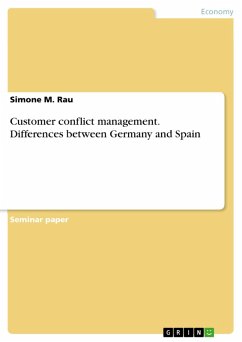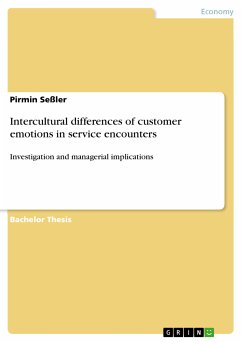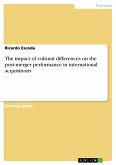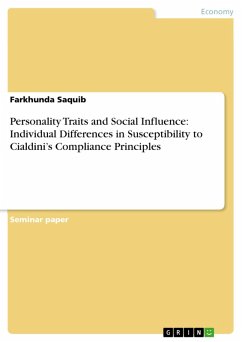Seminar paper from the year 2018 in the subject Business economics - Miscellaneous, grade: 2,0, University of applied sciences, Munich, language: English, abstract: Germany and Spain are important business partners. They both hold tight economic relations. Most of the Spanish imports, to be precise 14,7 %, have been from Germany in 2016. This illustrates the closely-knit network of the two countries. Moreover, many German companies have subsidiaries in Spain. For example, companies like Lidl, Daimler AG and Volkswagen AG are listed in the top 10 of Germany’s enterprises in Spain, ranked by the number of its employees. Even though, both countries are a member of the European Union and they have the advantage to do business in a highly liberalized market, there are still many issues which could lead to conflicts caused by different cultural values and perspectives. In order not to jeopardise the excellent trade relations, it is essential to know how to deal with conflicts within the two nations. As Germany has a lot of undertakings in Spain the focus of this seminar paper will be on customer conflict management. Furthermore, the society of the 21st century is highly influenced by mass media evoked by digitalization. This causes an almost infinitely qualitative and quantitative increase of collective and individual conflicts, which is another reason why conflict management nowadays is so essential. Hereinafter, the structure of the seminar paper will be outlined. The purpose of this paper is to analyse the differences between the German and Spanish cultures in terms of customer conflict management. The illustration of the term conflict management will be quite brief due to the limited extent of this paper. The comparison of the two cultures will be mainly based on the GLOBE Study and Hofstede`s dimensions. These two studies will help to outline the cultural similarities and differences of the two Eu-ropean countries. Firstly, the facts about culture, conflict management and the two intercultural communication studies used in this paper will be a short outlined. The main part will focus on the analysis of the German and Spanish culture by using the empirical findings of the GLOBE Study and Hofstede’s cultural dimensions. Afterwards the impact of cultural differences in terms of customer conflict management will be made clear. In the conclusion the seminar paper gives an idea of preventive measures on customer conflict management as well as a prospect for the future.








